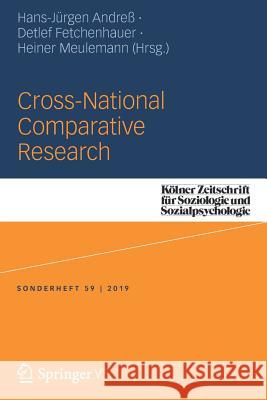Cross-National Comparative Research » książka
topmenu
Cross-National Comparative Research
ISBN-13: 9783658256098 / Angielski / Miękka / 2019 / 571 str.
Kategorie:
Kategorie BISAC:
Wydawca:
Springer vs
Seria wydawnicza:
Język:
Angielski
ISBN-13:
9783658256098
Rok wydania:
2019
Wydanie:
2019
Ilość stron:
571
Waga:
0.80 kg
Wymiary:
23.39 x 15.6 x 2.97
Oprawa:
Miękka
Wolumenów:
01
Dodatkowe informacje:
Wydanie ilustrowane











